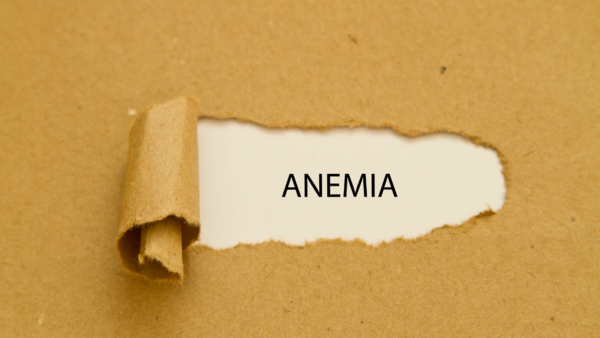Anemia is a common yet often overlooked condition that affects millions worldwide. It occurs when the body lacks enough healthy red blood cells to carry oxygen to its tissues, leading to symptoms like fatigue, weakness, and shortness of breath. Understanding the causes, recognizing the symptoms, and seeking timely medical help are crucial for managing anemia and preventing serious health complications.
Lack of essential nutrients such as iron, folate, or vitamin B12 is a common cause of anemia. Blood loss and numerous underlying medical issues can also lead to anemia. The condition commonly presents as the persistence of muscle weakness, a condition attributed to fatigue. However, if you experience regular weakness and overall deterioration in health, this may be an indication of anemia.
5 early signs of Anemia you shouldn’t ignore
Shortness of breath – Shortness of breath is another prevalent symptom of anemia. Red blood cells transport oxygen to every organ and tissue throughout our body. Anemia is a condition characterized by low levels of red blood cells in the body, which makes it more difficult for your organs and tissues to receive oxygen.
Hair loss and brittle nails – Reduced oxygen supply to hair follicles and nail beds can cause them to become weak resulting in excessive hair fall and brittle nails. Hair may thin out, and nails can become weak, break easily, or develop ridges.
Altered taste buds – Anaemia can cause a burning, sore sensation on the tongue, making it feel swollen and smooth. This condition, known as atrophic glossitis, may also lead to changes in taste perception. Some individuals develop cravings for non-food items like ice or clay (pica), which is strongly linked to iron deficiency.
Disruption of the menstrual cycle – Anaemia can disrupt the menstrual cycle, leading to heavier, prolonged, or irregular periods. Excessive blood loss worsens iron deficiency, causing fatigue and dizziness. In some cases, low iron affects hormone production, leading to lighter or missed periods. Chronic anemia may significantly impact energy levels, concentration, and overall reproductive health in women.
If left untreated, anemia can cause serious complications. Therefore, it is essential to contact your healthcare provider who will help you find solutions.
Understanding Anemia and its causes
Dr. Liza Bulsara, Consultant – Haemato Oncology and Bone Marrow Transplant, Jupiter Hospital, says , “fatigue, weakness, and shortness of breath.- Anemia is when you have low levels of hemoglobin in your body. When this happens, your organs and tissues have a harder time getting oxygen. The presence of these signs indicates anemia. It is necessary to urgently improve hemoglobin level , consult hematologist at earliest. One of the more common causes of anemia is not getting enough nutrients like iron, folate, or vitamin B12. However, anemia can also be caused by blood loss and a wide variety of underlying health conditions. Anemia can cause serious complications if it’s left untreated.”
That’s why it’s important to talk with a healthcare professional if you have symptoms of anemia. They can give you a proper diagnosis, determine the cause, and develop a treatment plan that’s right for you.

The importance of early detection in Anemia
“Anemia can lead to severe tiredness, making it very hard to get through your day. It can even be fatal, especially if you lose a lot of blood too quickly. Detecting anemia early can prevent serious complications and improve overall health. Regular screening tests are essential for timely intervention. Blood tests such as Complete Blood Count (CBC), iron profile, ferretin levels and if required, thalassemia test can help diagnose anemia accurately. Early diagnosis allows for effective treatment and prevents severe complications ,” said, Dr. Sunita Kapoor, Director & Laboratory Head, City X-Ray and Scan Clinic Pvt. Ltd.
Diet and supplements for Anemia management
According to Dt. Debjani Banerjee, Incharge Dietetics, PSRI Hospital., “Eating a diet with iron-rich foods is one way to treat your anemia at home. Some foods that have high amounts of iron include:
• Meats
• Eggs
• Leafy green veggies
• Iron-fortified foods like cereals
• Beans
• Seafood
• Peas
• Nuts and dried fruit
• Lentils
In addition to a healthy diet, you can take supplements, which will increase the amount of iron and hemoglobin in your body. Talk to your doctor about taking an iron supplement for anemia and see how they recommend taking it.


